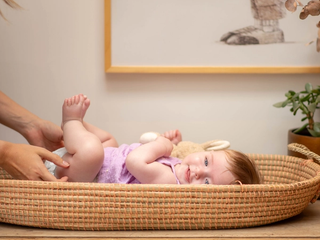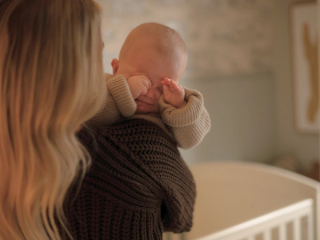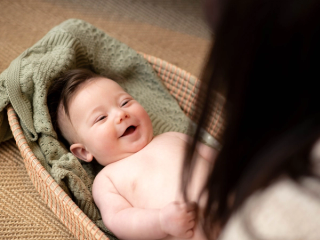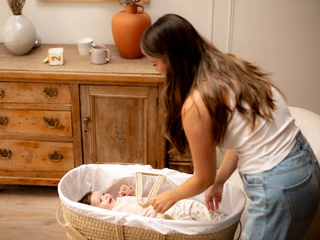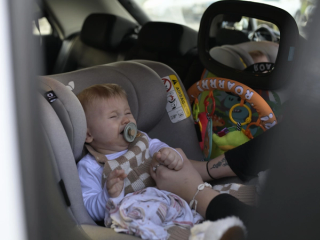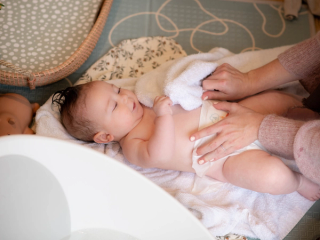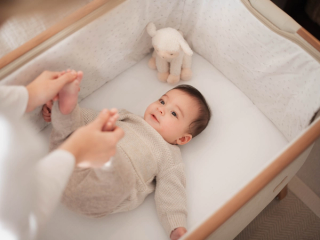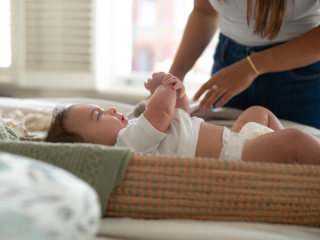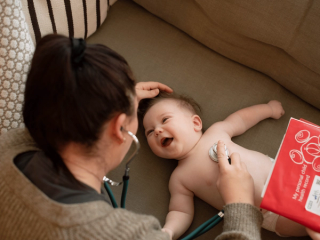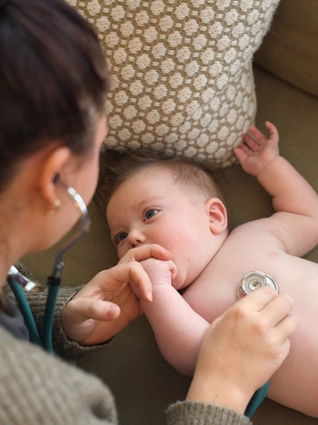
- Home
- Advice Hub
- Newborn
- Essential Newborn Care
- Baby Immunisations And Vaccinations
Baby Immunisations and Vaccinations
Learn how routine baby vaccinations protect against serious diseases, support herd immunity, and keep your little one safe from preventable illness.
As a parent, one of the most effective ways you can protect your baby’s health is through routine vaccinations. We know for parents and babies, vaccination appointments or “jab days” are no fun, however they offer vital protection against serious and potentially life-threatening diseases.
Immunisations stimulate your baby's own immune system by introducing tiny amounts of weakened or inactive virus - not enough to cause illness, but just enough to teach your baby's body how to create antibodies to fight it. This means that if your baby is ever exposed to the real infection in the future, their immune system is ready to fight it off.
Before the introduction of routine childhood vaccinations, illnesses like measles, polio and whooping cough were common and sadly, many children died or suffered long term complications. Today due to widespread immunisation these diseases are rare. However, when vaccination rates drop, such infections can re-emerge - as seen with a recent rise in measles cases across parts of Europe and the UK.
It's important to stay informed and cautious of misinformation. Anti-vaccine content can be misleading and harmful. Always rely on trusted sources like the NHS or the World Health Organisation (WHO) for accurate, evidence-based guidance. Vaccines are thoroughly tested before they’re approved and are continually monitored for safety once in use.
Vaccines not only help to protect your baby but also help to protect others in the community, including those who are too young or too ill to be vaccinated - this is called herd immunity.
Baby immunisations schedule
The NHS childhood vaccination schedule starts when your baby is 8 weeks old and continues through toddlerhood. Here’s what to expect:
At 8 weeks (2 months)
- 6-in-1 vaccine: Protects against diphtheria, tetanus, pertussis (whooping cough), polio, hepatitis B, and Haemophilus influenzae type b (Hib)
- Rotavirus vaccine: Given orally, protects against a virus causing severe diarrhoea and vomiting
- MenB vaccine: Protects against meningococcal group B bacteria, protects against serious illness including meningitis and sepsis
At 12 weeks (3 months)
- Second dose of 6-in-1 vaccine
- Second dose of rotavirus vaccine
- Pneumococcal (PCV) vaccine: Protects against pneumococcal infections such as pneumonia, sepsis, meningitis
At 16 weeks (4 months)
- Third dose of 6-in-1 vaccine
- Second dose of MenB vaccine
At 12 months (1 year)
- First dose of Hib/MenC vaccine: Protects against Haemophilus influenzae type b (Hib) and meningitis C
- First dose of MMR vaccine: Protects against measles, mumps, and rubella
- Second dose of Pneumococcal vaccine
- Third dose of MenB vaccine
From 2 years onwards
- Annual flu vaccine (offered each autumn, usually as a nasal spray)
- Further dose of MMR and 4-in-1 pre-school booster (given at around 3 years and 4 months)
Your GP surgery or health visitor will send reminders, but keeping your own vaccine tracker can also help. You can find more information on each vaccine here: NHS vaccination schedule.
What are some of the side effects your baby might experience?
Side effects of vaccination are usually mild and do not last long, these can include:
- Redness, swelling or tenderness at the injection site
- Fussiness or irritability
- Feeling a bit unwell or flu-like symptoms
- Fever
Your GP or health visitor can offer guidance on easing these common side effects and support you in making the vaccination experience as comfortable as possible.
It is rare to develop a serious allergic reaction to vaccination, if this does occur, it typically happens within minutes of the injection. Vaccinators are fully trained to recognise and manage allergic reactions immediately. With quick and appropriate treatment, a full recovery is expected.
Here are some useful tips when preparing for routine immunisations: Vaccination tips for parents.
Conclusion
The routine immunisations are an important step in protecting your baby’s health and also protecting vulnerable people in the community. If you have any questions or concerns around vaccinations, it’s important to speak to your GP or health visitor. You can also find accurate, reliable and up-to-date information on the NHS website.
Frequently asked questions about baby vaccinations
It’s common for babies to be a little more irritable, sleepy, or off their feeds after having their immunisation. This is common within the first 24-48 hours and then will settle.
Ideally, vaccinations should be given on time for maximum protection. However, if you’ve missed an appointment, don’t worry - speak to your GP or health visitor about scheduling the next doses as soon as possible.
A fever is a common side effect, especially after the MenB vaccine. You can give infant paracetamol (following the dosage instructions for your baby’s age) to help reduce the temperature and ease any discomfort. Keep your baby cool and hydrated, and monitor their symptoms. Contact your GP if you have any concerns or the fever is not settling.
Most babies recover quickly and are back to normal within a day or two. If symptoms persist beyond 48 hours or seem to worsen, it’s a good idea to check in with your healthcare provider.
If your baby has a high fever on the day of the vaccination, you may be advised to delay the appointment. Vaccinations are safe for most babies, generally they are only not suitable if there has been a serious allergic reaction to a previous dose or to ingredients in the vaccine. Those with weakened immune systems may also not be able to have some vaccines. If you are unsure whether your baby can be vaccinated, please check with your GP, practice nurse, health visitor or pharmacist.
